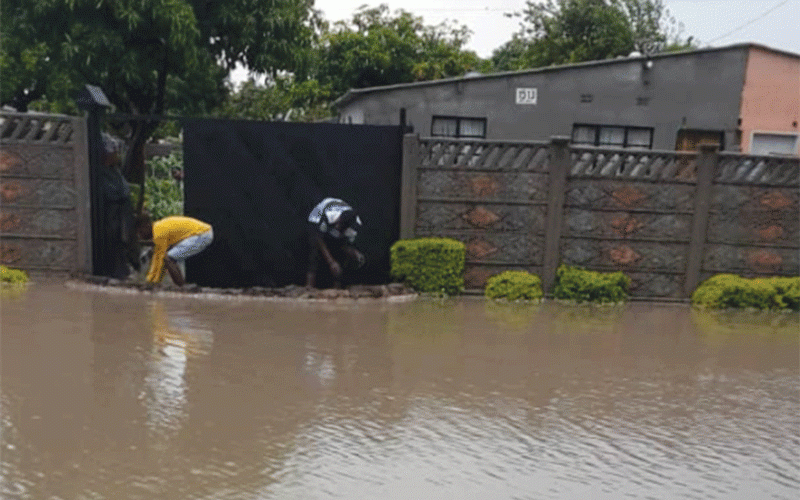
WHEN everyone thought the rains were gone, they found themselves walking on wet ground on Wednesday morning after heavy downpours pounded most parts of the country on Tuesday night.
The wet season was projected to start around Christmas time last year and end in March.
But events of the past few weeks and what is happening now shows that the rains are still with us.
An update by the Meteorological Services Department shows that until Sunday, most parts of the country will be receiving rain, with towns and cities such as Masvingo, Chinhoyi, Bindura, Harare, Mutare, Lupane and Kadoma receiving heavy downpours.
Flash floods cannot be ruled out when such high rainfall is received and communities must be alert, particularly those who stay in water channels, near rivers or in floodplains.
Numerous cases of children swept away during flash floods have been reported.
A sad incident occurred in February in Gokwe, when four children aged between nine months and four years, were swept away after seeking shelter under a bridge.
They fell asleep under Tare Bridge along the Gokwe-Siabuwa Road.
- We’re not concerned by now-habitual State media propaganda
- A false unity
- Ekusileni Hospital faces closure
- The Fiddler: A strange endingA strange ending
Keep Reading
Three of the four bodies were later found along the river. In the same month, a three-year-old boy, who was walking home with his elder brother, fell into a drainage channel and was carried away by fast-moving water.
His body was found trapped in a ditch along Luveve Road.
The above cases are not isolated, such incidents occur time and again.
There are several incidents where the Department of Civil Protection (DCP), a national organ housed under the Local Government and Public Works ministry, had to step up.
The department must develop a database on disaster risk reduction.
A few years ago, a research paper stated that the department has no modern infrastructure that facilitates communication and networking among disaster risk reduction institutions and research centres.
“Information is still being managed at institutional level through sharing reports, minutes, newsletters, and email facilities. However, some UN agencies have developed web sites and are working towards the development of databases to enable real-time information sharing with interested partners,” the paper read.
In times like these, where there is possibility of flash floods, DCP should be seen to be proactive.
It must carry out public awareness campaigns and not wait to react after disaster has struck.
On the other hand, Treasury must set aside enough funds for use in times of disaster.
The department should work hand-in-glove with tertiary institutions, which deal mostly with communities that are vulnerable to flooding emergencies as well as develop sustainable construction materials.
We also want to believe that there is co-ordination between the Meteorological Services Department and DCP so that swift action is taken to avert looming disasters.






